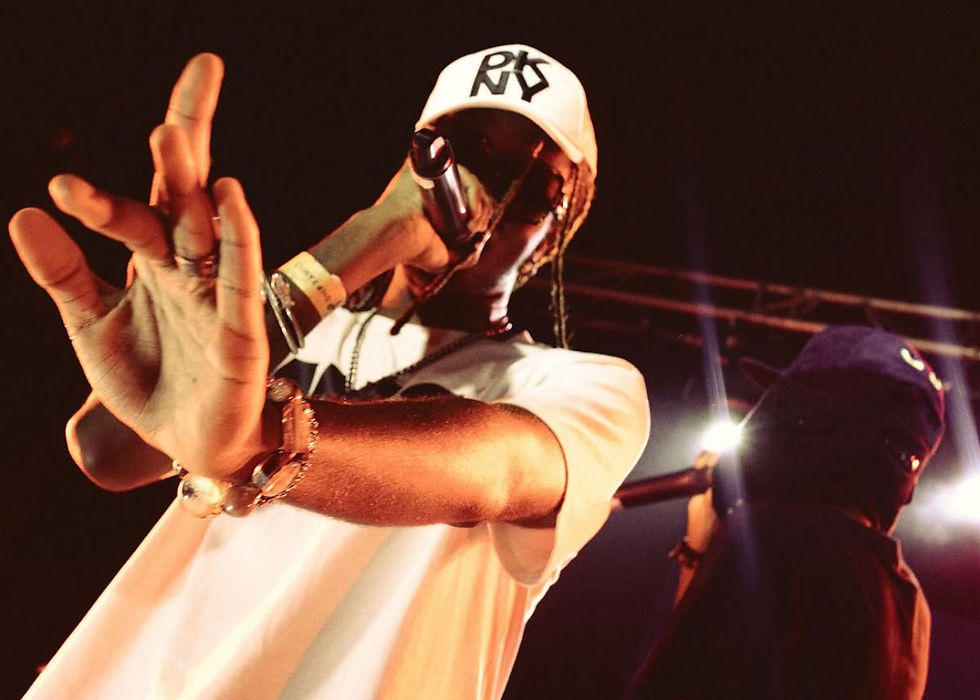Why TWSTDFEST Matters: Valuing Independence and Experimentation
- Zhakiya Sowah
- Aug 27
- 3 min read
In the UK, conversations around music festivals often circle the same frustrations: mainstream lineups struggling to evolve, structural barriers that flatten emerging voices, and a nagging sense that once-innovative spaces are calcifying under commercial pressure. On August 10th I attended TWSTDFEST and was exposed to a different model.

In partnership with ukundergroundrap, PRETTYTWISTED*’S DJXHNWAV has created a festival that serves as a proposition for how Black British culture might sustain itself outside industry gatekeeping. TWSTDFEST privileges the underground, foregrounds experimentation, and treats community as the engine of cultural progress rather than an afterthought.
TWSTDFEST drew 600 people, signaling trust, momentum, and a community willing to invest in a vision. In a landscape where scale is often conflated with value, TWSTDFEST shows that independence can gather its own critical mass. It was clear to me that intimacy can be as powerful a measure of cultural weight as spectacle.
It’s evident that what TWSTDFEST has is current and significant, evidenced by the line up alone. Performances from kwes e, Jim Legxacy, BXKS, N4T, Ceebo, and TR Gobrazy did more than showcase rising talent; they mapped a shifting soundscape that is hard to categorise but undeniably of this moment. In their collisions of digital-era experimentation, the artists mirrored the festival itself: provisional, hybrid, and unafraid to unsettle boundaries.

That unsettledness is precisely the point. TWSTDFEST belongs to a lineage of Black British underground movements that have thrived not by fitting industry templates but by building parallel infrastructures. Sound system culture, pirate radio, grime raves have all carved space where Black expression could unfold on its own terms. TWSTDFEST draws from that tradition while responding to the conditions of the 2020s, when the industry absorbs underground genres quickly but often strips them of their social grounding. By positioning the underground not as a training ground for mainstream absorption but as a cultural destination in itself, TWSTDFEST challenges the hierarchies of visibility that still shape British music.

DJXHNWAV, the festival’s founder, articulated this in unambiguous terms: “If you’ve ever felt like there wasn’t space for you in certain scenes, or like you had to water yourself down to be booked or seen - just know, this festival is for you… When you buy a ticket, you’re contributing to the future of Black UK music.” The quote doubles as a diagnosis and a manifesto. It diagnoses the exclusions many Black artists face in the UK circuit, where opportunities often require compromise; and it offers a manifesto for a different future, one built by self-determination rather than institutional approval.
Crucially, TWSTDFEST arrives at a moment when mainstream Black cultural events are said to be “hitting a wall.” The problem is not talent but structure: an industry eager to commodify the aesthetics of Black music while neglecting the ecosystems that sustain it. Festivals like Wireless, once a stage for innovation, now lean heavily on American acts and established names. TWSTDFEST flips the frame and prioritises documenting and amplifying the underground as it happens.





![Sampling Memory: The Experimental Soul of ladé's Nollywood Nightmares [EP Review]](https://static.wixstatic.com/media/1779fb_fe349750e6174344a99d2501cbea0dc7~mv2.jpeg/v1/fill/w_980,h_972,al_c,q_85,usm_0.66_1.00_0.01,enc_avif,quality_auto/1779fb_fe349750e6174344a99d2501cbea0dc7~mv2.jpeg)


Comments